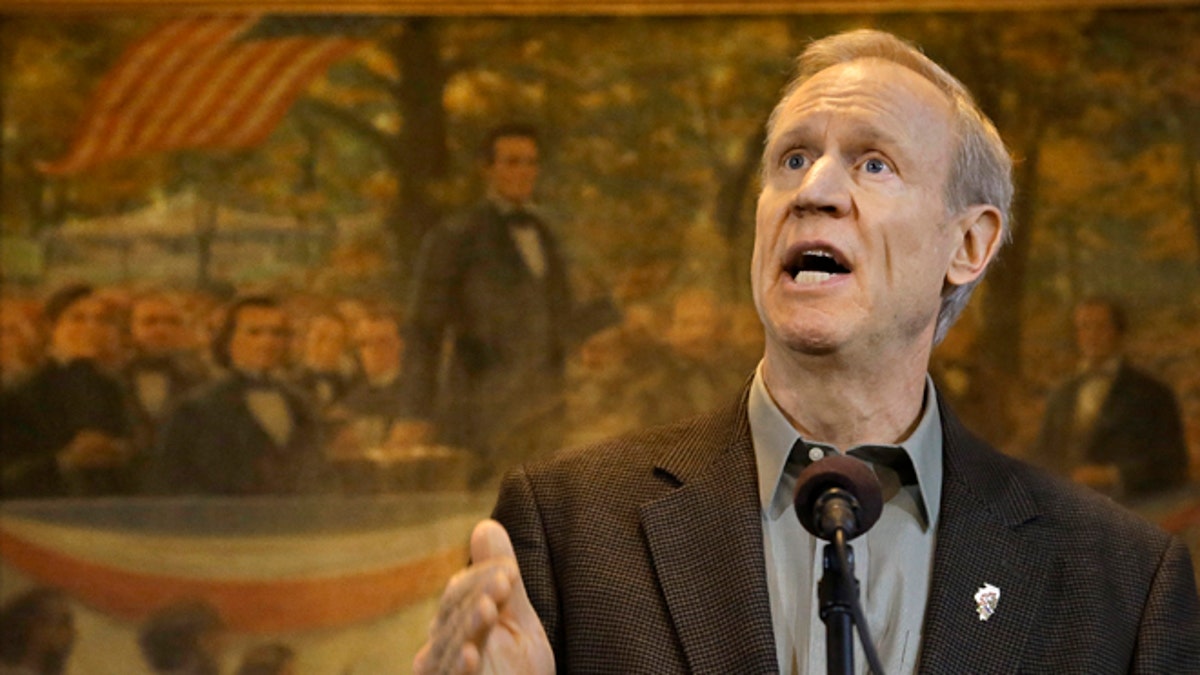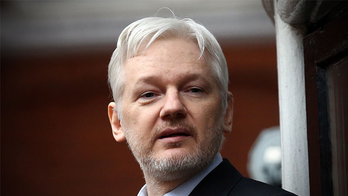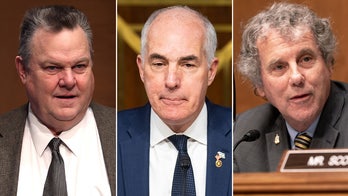
Feb. 9, 2015: Illinois Gov. Bruce Rauner speaks to reporters during a news conference in his office at the Illinois State Capitol in Springfield, Ill. (AP)
The latest budget impasse in Illinois is about to hit elected officials in their wallets, with the state comptroller planning to delay their paychecks amid nearly $6.5 billion in past-due bills.
The austere measure and mounting bills are the result of a stalemate between Republican Gov. Bruce Rauner and the Democrat-controlled legislature on a tax-and-spending plan that has dragged on for nearly 10 months. Their failure to compromise already has caused cutbacks in social services and sparked concerns about cuts in education.
“We’re all in this together,” Comptroller Leslie Munger, who called for the paycheck delay, said last week. “We all have to stand and wait in line together.”
Munger insists she isn’t trying to be “punitive” toward the elected officials, who in July will have another budget due.
“I’m just trying to be fair,” said Munger, appointed as comptroller by Rauner and sworn in last year.
Munger’s measure -- which would impact her, the attorney general and the legislature’s 177 members -- amounts to $1.3 million a month, or $15.6 million a year. The comptroller wants to make lawmakers wait for their paychecks just like others, hoping to motivate lawmakers to strike a deal.
The amount is relatively small, compared with the billions in unpaid bills, which are projected to reach $10 billion by July.
Still, others are skeptical or argue the Munger’s decision is politically motivated, considering she is trying to get elected in November to the comptroller post.
“I hope it works, but I doubt it,” state Democratic Rep. La Shaw Ford told CBS Chicago TV.
Rauner, a wealthy businessman elected in 2014, does not collect a salary.
The sides essentially agree that a mix of spending cuts and tax increases will end the budget impasse. But Democrats are not on board with Rauner’s request for a slate of pro-business incentives and changes to collective bargaining laws.
The stalemate has resulted in a roughly two-month delay in payments to small businesses that provide services to the state and to nonprofits that provide social services across Illinois. And roughly 24,000 state workers are also reportedly owed back pay.
Former Gov. Pat Quinn tried a similar move in 2013. He vetoed state lawmakers’ pay to push reforms to the state’s employee pension plan. However, a judge ruled the move unconstitutional.
Munger’s effort apparently attempts to avoid such a legal challenge because she is having the checks printed, then added to the stack of bills.
The next monthly paycheck for elected officials is scheduled to be issued on April 30.




